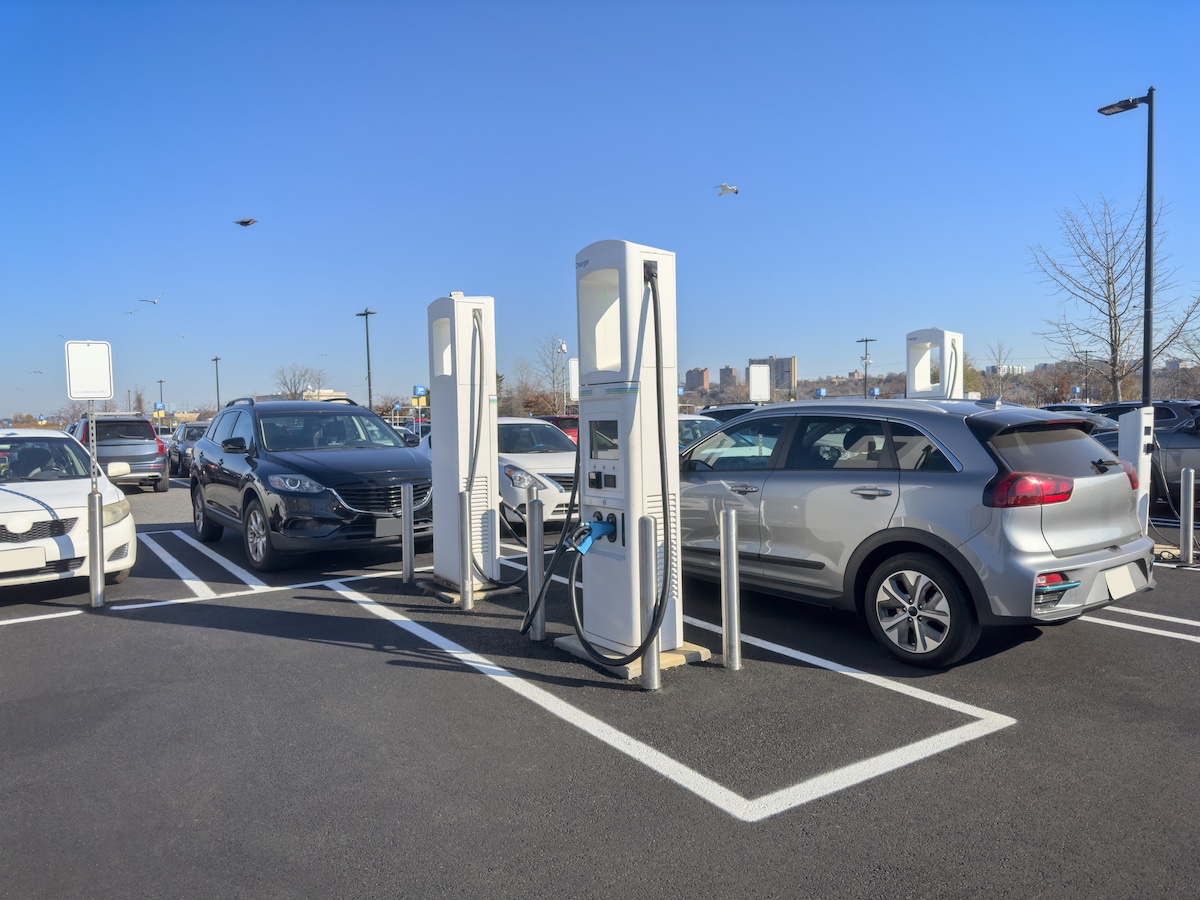IEA Predicts Electric Car Sales Increase of 35% in 2023

 Why you can trust us
Why you can trust us
Founded in 2005 as an Ohio-based environmental newspaper, EcoWatch is a digital platform dedicated to publishing quality, science-based content on environmental issues, causes, and solutions.
Last year was a good year for the electric vehicle market. Of new cars sold in 2022, electric cars made up 14%, or around 10 million units, globally. Now, the International Energy Agency (IEA) is predicting that growth to continue, with electric car sales expected to increase 35% in 2023 compared to last year.
In 2022, new electric car sales reached 14% of all new cars sold, compared to just 9% in 2021, according to IEA’s Global EV Outlook 2023. Already this year, 2.3 million electric cars were sold in the first three months — 25% higher than electric car sales in Q1 of 2022.
IEA estimates that 2023 will reach 14 million new electric cars sold, a 35% increase compared to the number of units sold in 2022. Purchases are expected to increase in the second half of 2023, and electric cars could make up around 18% of new cars sold for the year.
“Electric vehicles are one of the driving forces in the new global energy economy that is rapidly emerging — and they are bringing about a historic transformation of the car manufacturing industry worldwide,” IEA Executive Director Fatih Birol said in a press release. “The trends we are witnessing have significant implications for global oil demand. The internal combustion engine has gone unrivalled for over a century, but electric vehicles are changing the status quo. By 2030, they will avoid the need for at least 5 million barrels a day of oil. Cars are just the first wave: electric buses and trucks will follow soon.”
China leads in electric cars, with more than half of all electric cars in the world. Across Europe, the report found that electric car sales increased 15% in 2022, while in the U.S., electric car sales increased 55% last year compared to the previous year. The U.S. is the third largest market for electric cars, making up 8% of all electric car sales globally.
More policies on EVs are driving growth. The Inflation Reduction Act in the U.S. extends tax credits for electric vehicles and introduces tax incentives for used EV sales and commercial EVs while also investing in charging infrastructure. In the EU, the Fit for 55 proposal is expected to boost EV sales, as this package includes emissions reduction targets for vehicles, with a goal to reach 100% zero emissions for new car and van sales in 2035.
EV growth is also happening in smaller markets, according to IEA’s report. In India and Indonesia, electric car sales more than tripled. Sales in 2022 were more than double the units sold in 2021 for Thailand.
Further, many regions are also seeing rapid electrification of smaller two- and three-wheel vehicles that are now outnumbering cars on the roads. Further, IEA predicts that more electrification will happen globally for larger vehicles, like buses and trucks.
In total, the growing EV market could greatly reduce oil demand and emissions. The report predicts that global demand for oil needed for road transport will peak by 2025. Already in 2022, IEA estimates that EVs displaced 700,000 barrels of oil per day.
“Road transport accounts for over 40% of global oil demand, but electric cars are driving a major transformation of the auto industry,” Birol said on Twitter. “EVs are set to displace over 5 million barrels of oil demand a day by 2030, based on current policy settings alone.”
Subscribe to get exclusive updates in our daily newsletter!
By signing up, you agree to the Terms of Use and Privacy Policy & to receive electronic communications from EcoWatch Media Group, which may include marketing promotions, advertisements and sponsored content.

 233k
233k  41k
41k  Subscribe
Subscribe 




